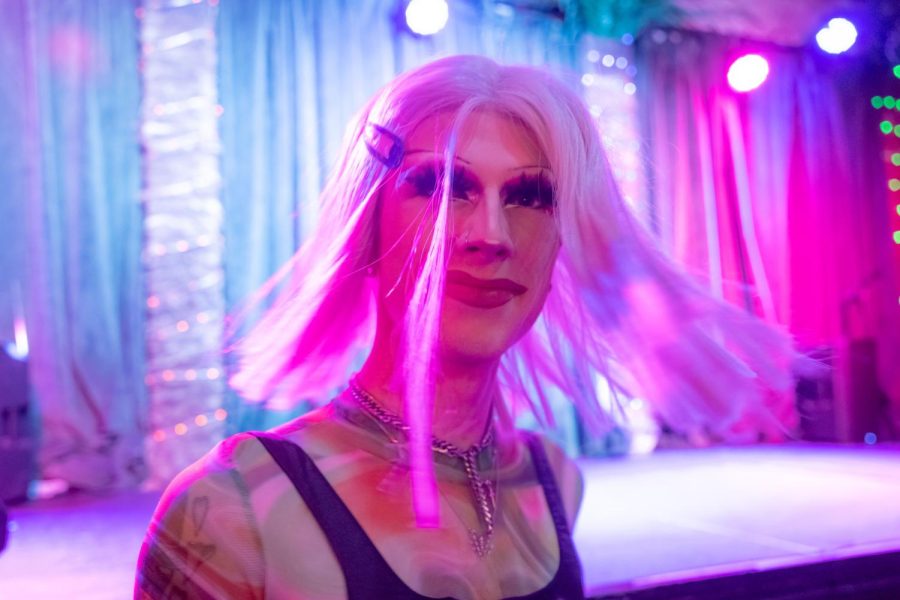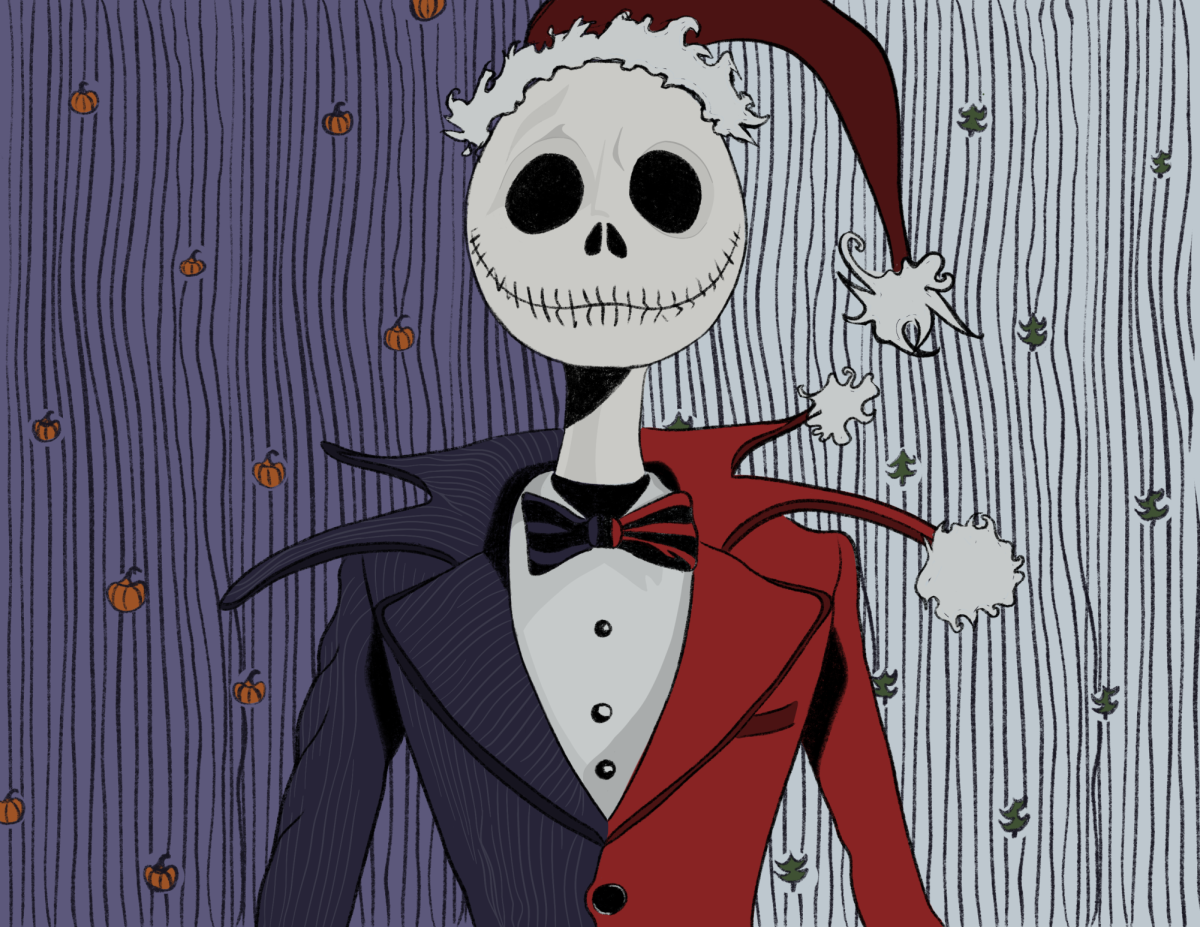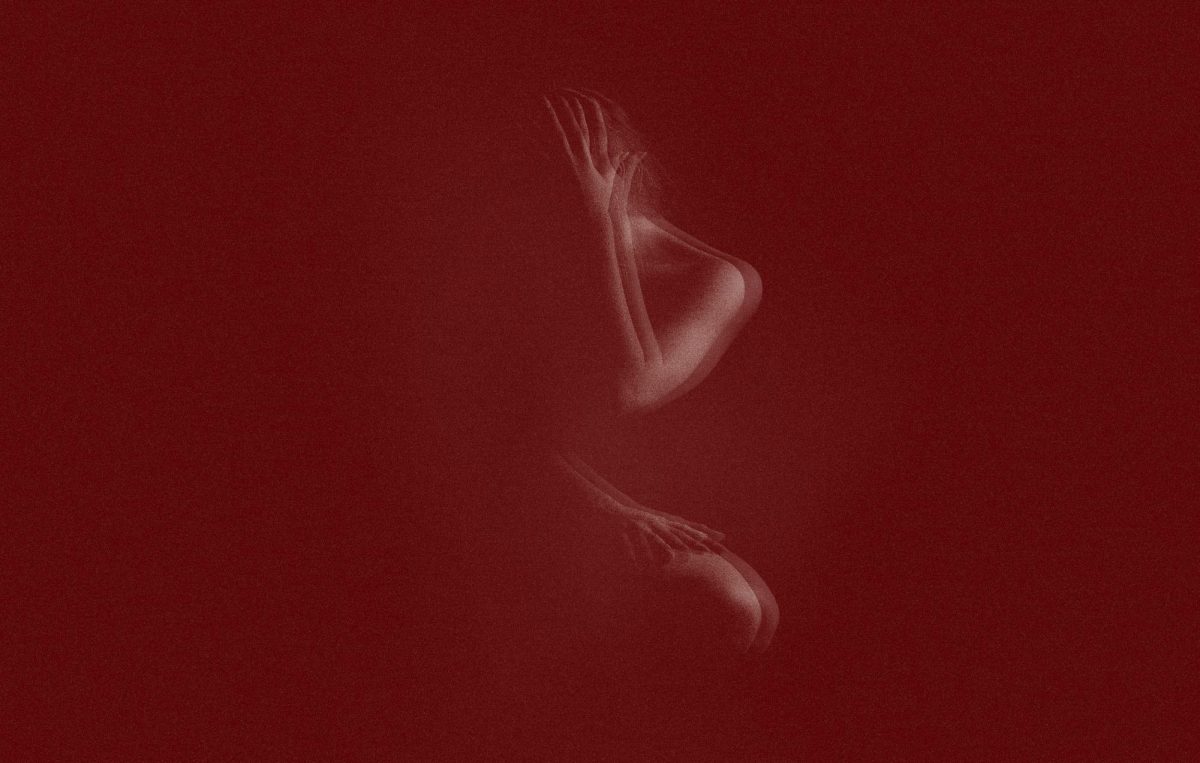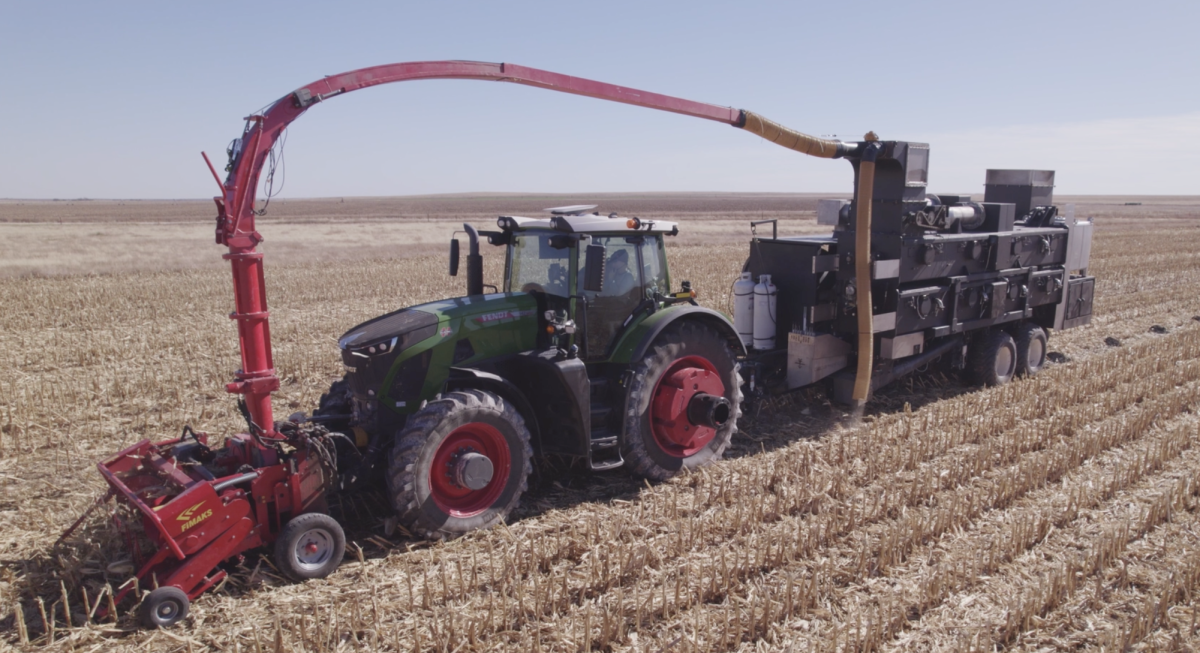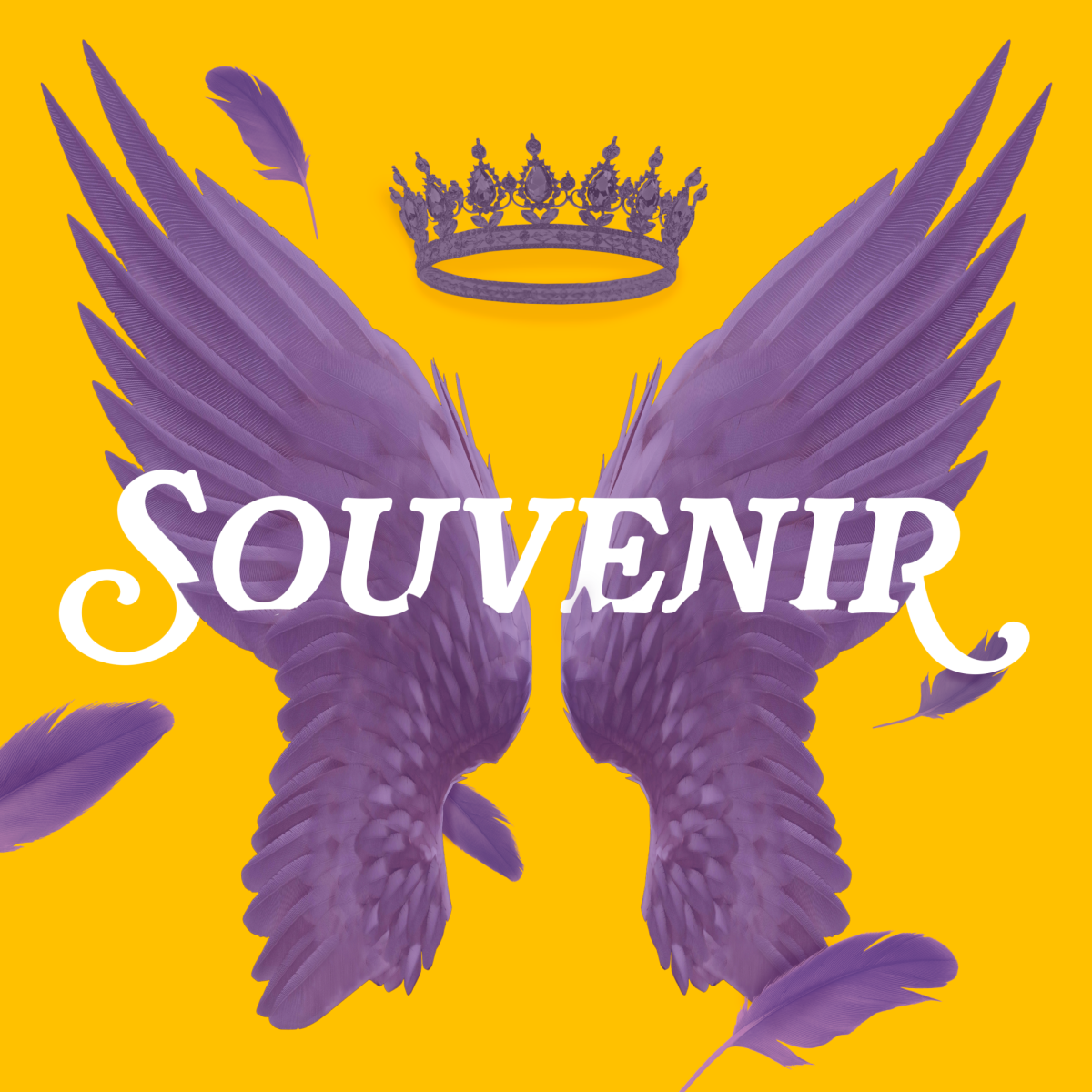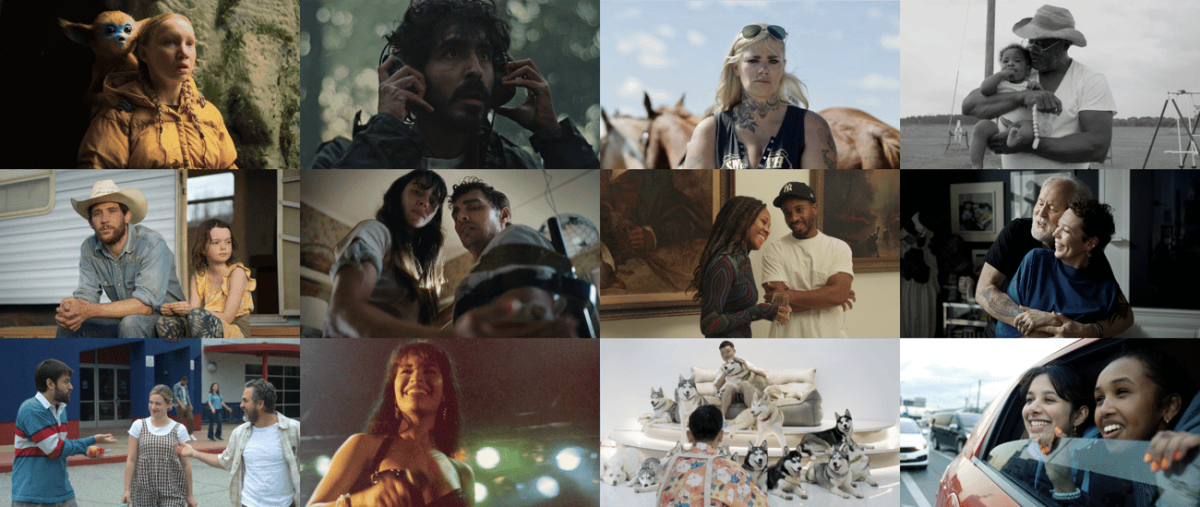Extensions of Identity: U Alum and Student on Performing Drag
Drag Queen Hysteria attends Why KiKi bar in Salt Lake City on Thursday, Feb. 24, 2022, before a drag show featuring Silky Ganache and others. (Photo by Jack Gambassi | The Daily Utah Chronicle)
March 21, 2022
As of 2019, 3.7% of Utah adults identify as being part of the LGBTQ+ community, according to the Movement Advancement Project.
A Growing Community
It is shocking how big and growing the drag community of Salt Lake City is, according to University of Utah student and performance artist Trey McEuen, known professionally as Hysteria.
“And how hungry people are in Salt Lake for it — they want to support queer people, they want to have fun [and] to get involved,” Hysteria — who uses both she/her and they/them pronouns — said. “There are so many people trying it out for the first time or coming to shows. In this last week, I’ve seen four or five brand new shows pop up, which is really exciting.”
U alum, professionally-trained figure skater, drag queen and RuPaul’s Drag Race season 13 competitor Cordero Zuckerman, better known as Denali Foxx, attributes Salt Lake City’s queer community as an important part of discovering her queerness.
“Salt Lake City was ironically and surprisingly my queer awakening,” Foxx said. “I didn’t know this at the time, but it holds one of the largest Pride festivals in the United States. I was able to experience my first at 17, and I was like ‘Oh my gosh, this is amazing.’ I really had the opportunity to surround myself with a good group of LGBTQ allies and people. That’s, kind of, where I discovered my love for queer arts. Later down the road, I would stumble upon a little television show called RuPaul’s Drag Race.”
Though Salt Lake City played a role in Foxx embracing her queer identity, she did not first try drag until she was living in Chicago. According to Foxx, she realized she could pursue drag while watching season five of RuPaul’s Drag Race.
“I moved to Chicago because I was very complacent in my life and what I was doing,” she said. “I pursued, kind of recreationally, drag while I was still coaching and doing things on the side with figure skating.”
Foxx said she did not expect her doing drag to skyrocket into where it is now.
“I had only been doing drag for about two years when I auditioned for the show,” she said. “I got on and I was so nervous and so scared, but you know, I had a lot of interesting skills that I was able to take onto the show and I’m really proud of what I was able to do.”
‘Food for the Soul’: The Power of Performance
To combine drag and her interesting skills, Foxx performs figure skating routines while in full drag.
“There are so many crossover qualities between figure skating and drag,” she said. “The performance aspect of it, the drama, the dazzling and glamorous outfits, things like that. There are truly so many things that go hand in hand.”
Performing is often a key part of drag and is something many drag artists enjoy.
“I come from a family of performers,” Hysteria said. “I have always loved sharing stories on stage, whether it’s a personal story or another story, and making a connection with someone.”
Along with performing, Hysteria loves and appreciates Salt Lake City’s drag community, having met a number of other performers.
“Quite honestly, I have so much respect for other artists in Salt Lake City,” they said. “I work most closely with Sequoia. I have had a wonderful opportunity getting to work with her, do shows with her [and] learn from her in everything she does. There are just so many wonderful people that I get to meet, hear their stories and see the work they do and how they have really made an impact in Salt Lake City.”
On Feb. 10, in an event hosted by Sequoia, Hysteria made her debut performing at Quarters Arcade Bar in downtown Salt Lake City, something she described as wonderful, horrifying and very vulnerable.
“30 seconds before going on, I thought, ‘Am I gonna pass out?” she said. “[It was] like all this weird, tossing up of feelings, of ‘this feels so wrong and right and scary and exciting.’ All of those feelings kind of come into one.”
Despite how nervous she was, they said while stepping out onto the stage, she had never felt more excited.
“I had never felt more supported by people, never felt more actualized in myself,” she said. “Every single action I was making was purposeful [and] intentional, had a meaning, had a thought behind it as to why, when and how. That felt really good.”
Foxx said she loves performing because she enjoys interacting with the audience.
“It is like food for the soul, for me,” Foxx said. “It’s like the mushroom in Mario Kart. I need it, it’s just like a boost of serotonin. Performing will always be my one true love.”
Making a Name for Themselves
According to Foxx, the persona of Denali is the epicenter of all of those positive feelings she associates with performing — she is a performance girl and just wants her roses and claps. Foxx does not view doing drag and donning her persona as an escape from herself, but rather an extension of her identity.
“I think for a lot of people, it can oftentimes feel like an escape from their own personal identity and it’s an armor that they get to wear, or it’s this disguise,” she said. “For me, it is more of an extension of who I already am. Cordero and Denali are very, very similar. I actually refer to Denali as the child version of Cordero. Cordero gets to do life and business and work and Denali gets to be that six or seven-year-old kid that’s doing pirouettes in his living room for his mom.”
Though it brings her joy, Foxx said being in drag can be exhausting and uncomfortable.
“People that like to use drag as escapism, they can be in drag for hours, like, ‘I don’t care how uncomfortable I am, I look amazing,’” she said. “For me, I’m like, ‘Oh, I’ve clocked out, the gig is done, take every single nail off, wipe the makeup off, I’m done.’”
Hysteria described the act of getting in and out of drag as ritualistic and a form of self-care.
“Putting makeup on feels really good,” she said. “I have to get so in tune with myself. There are probably a lot of things that I could be like ‘I hate that about my face’ or ‘I don’t like that about myself.’ But, it is also a time that I am just dedicating to being with myself.”
Along with this, Hysteria wants to portray messages through her performances.
“Whether that [message] is that people have a lot of money and that’s absurd, or making a critique on our local political climate,” they said. “I think it’s a way to acknowledge what is happening in the world, historically and what’s happening now.”
While Hysteria’s name is inspired by the outdated, gendered medical diagnosis which tried to quell female sexuality and the chaos of the modern world, the name Denali can be linked to Alaska, where Foxx grew up.
“I was raised in Fairbanks, Alaska … it’s pretty small,” Foxx said. “Denali was the name of, basically, the territory that I grew up around. The tallest mountain in North America is Mount Denali and in its native language (Koyukon) it means ‘the great one.’”
For Foxx, though, the name Denali was actually inspired by something else.
“The real meaning comes from my grandmother, she was hospitalized at a center called the Denali Center,” she said. “She actually attempted suicide very young and had brain damage, so my mother was taking care of her all the time at this place. It was the first place that I had ever seen strong women, kind of, working together. It was just so beautiful to see. It was the first time I had ever connected to the matriarch figures in my life.”
Foxx wanted to dedicate her name to her matriarchal figures, but not by directly naming herself after her grandmother.
“She couldn’t really speak, but she and I would connect because she had dimples and I had dimples myself,” she said. “I would come into the room, and she would just point to me and point to her dimples. I don’t remember much as a child, but that is one memory that has stuck with me for a long time. So I named myself after where she was hospitalized.”
Hysteria said performing drag is a way for her to show parts of herself she has felt should not always be visible and that it is a way for her and the audience to embrace being in the moment, and to be insane, absurd and hysterical.
“I feel like today we live in a pretty hysterical world,” she said. “We live in a world where there is a climate crisis, where there is economic disparity. Also, we have a crazy gendered world [that] we live in, where gender is so policed. I think Hysteria is my way of acknowledging all of that, and then kind of saying none of that matters. That it’s okay to not know where you are in the world. It is a way to embrace every facet of myself.”


